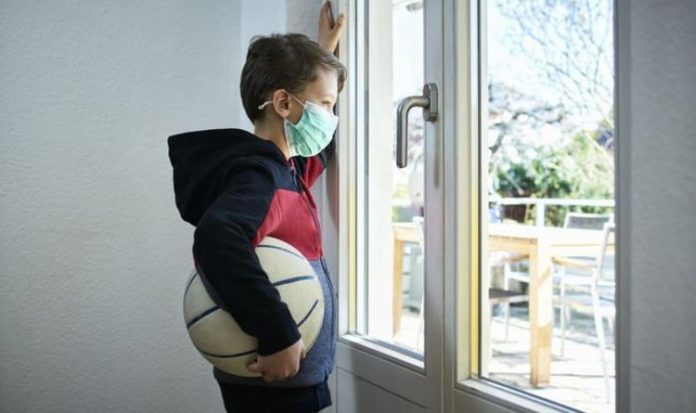They are urging the Government to take urgent steps to examine and address the collateral damage that has been caused to children from issues such as school closures, lockdowns and social isolation as a result of the pandemic. One specialist is calling for a task force to be launched immediately and to remain in place for10 years, which would include experts in child abuse and neglect, childhood depression, suicide and anxiety, as well as physical, educational and developmental health.
Generation Lockdown is facing lower life expectancy, poverty, long-term mental health problems and higher suicide rates.
There is an urgent “need to promote hope”, insist experts.
Dr Robert Hughes, a clinical research fellow in early childhood development at the London School of Hygiene and Tropical Medicine, said: “We are seeing the tip of a very dark iceberg and we need both an emergency and long-term response.
“I’m concerned that while the Government has lately talked about children being a priority, actions – and budgets – speak louder than words.
“Protecting the NHS and saving lives are of course vital, but a year in we mustn’t stop there.
“Our politicians need to acknowledge there are a range of priorities, which surely must include addressing the long-term effects of lockdowns which we know will have a detrimental effect on the next generation.”
He said that his biggest fear “is that we will have a lifetime of harm caused by this policy unless we place a bigger emphasis on children in our pandemic response and an ambitious, urgent programme of support to those who have already, and are right now suffering”.
He added: “Lockdowns should not be seen as a binary choice – open or closed, safe versus not safe. It is more complicated than that. We need to accept that this is about mitigating risks and benefits and we need to balance these, prioritising what really matters – including the next generation.
“A dedicated task force, or a new Sage sub-group focusing on the long-term, could help us to plot the best way out of this lockdown and to plan for the longer term, addressing some of the less obvious harms this pandemic is causing.
“Children do not employ lobbyists and I worry they are suffering because not enough people – including at Cabinet level – are speaking out for them.”
Ellen Townsend, a professor in psychology at the University of Nottingham, said: “With school closures and stay-at-home orders we are conducting an unethical mass experiment with child development.
“Social interaction shapes us and our brains as we grow up.
“Social prescribing exists in healthcare because it promotes fundamental human needs and can improve health.
“The impacts of restrictions are life limiting and will ultimately lead to reduced life expectancy through poor education attainment, long-term mental health problems and unemployment/poverty.
“This is a national crisis which is becoming a national emergency and we urgently need a group to be taking the needs of children into account when making any decision about the pandemic policy which reports to someone at Cabinet level.”
Their comments follow shock findings from a study by health provider Bupa which revealed last month that more than four million young people had experienced symptoms of poor mental health over the past 10 months – many for the first time.
These issues have manifested as physical health issues for 3.9 million, with many feeling close to breaking point.
Prof Townsend, a member of the Health Advisory and Recovery Team, said: “More evidence is emerging each week that schools are not significant in transmission and teachers are no more affected by Covid-19 than other professions.
“We need to open schools urgently with an emphasis on play, socialising and fun. We also need to promote hope. Hopelessness, entrapment and defeat are key ingredients for suicidal crises and we have asked young people to live in circumstances that exacerbate these issues for nearly a year.
“Suicide is the leading cause of death in people under 35 in England. Disaster planners indicate that we should have put them first from the beginning. Somehow, we have forgotten this.”
Dr Sunil Bhopal, a leading paediatrician at Newcastle University, said: “Action is needed now and I do not think the needs of children have been considered enough in our response to the pandemic in which children have been at the back of the queue. This is unconscionable.
“There has been a feeling around that nothing can touch you in childhood and you can bounce back. We in the children’s sector are saying what happens in the earliest years of your life matters lifelong. We know that people who have a tough childhood struggle through adulthood.”







